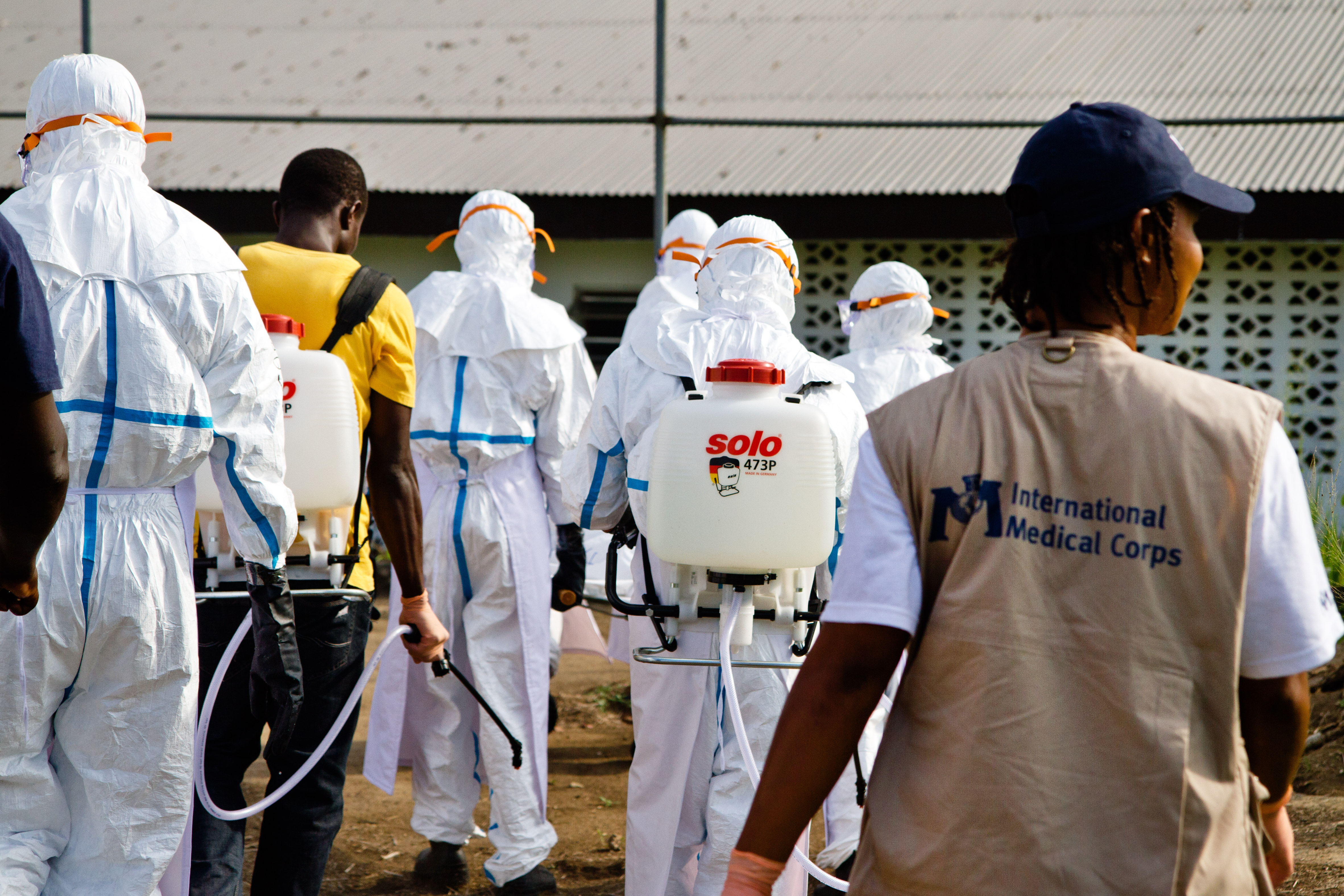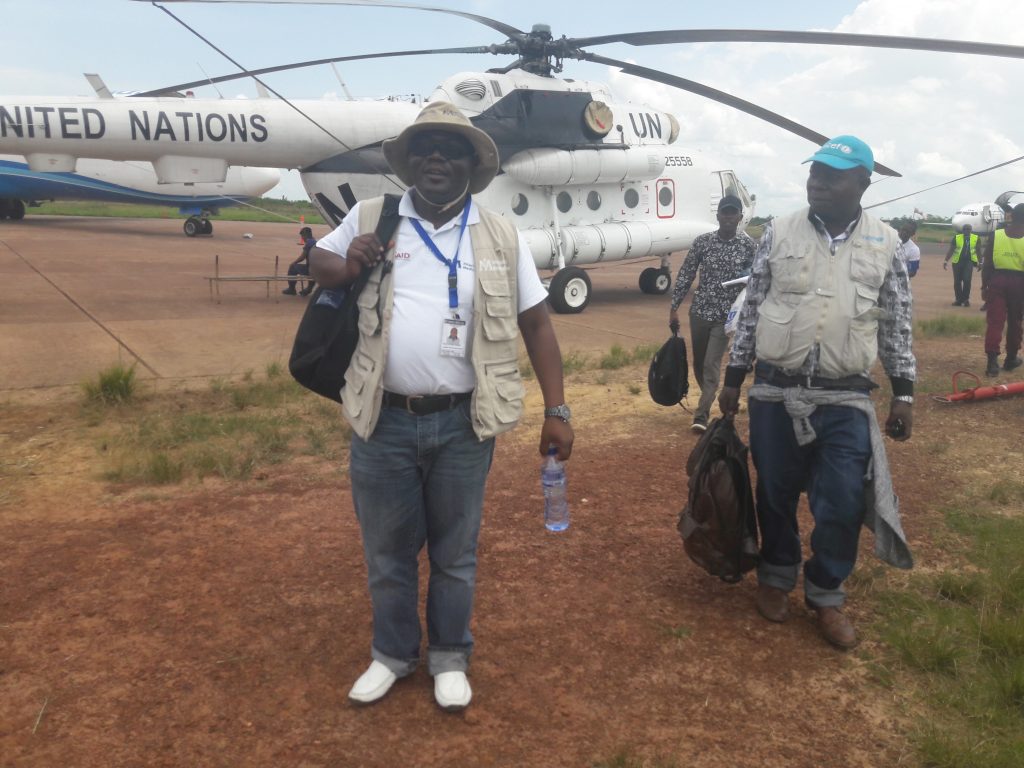Mike McCusker of International Medical Corps’ Emergency Response Team (ERT) has just returned from the Democratic Republic of the Congo (DRC), where an Ebola outbreak has the global humanitarian community on high alert. To date, there have been 66 reported cases of the Ebola virus in DRC and 28 deaths. International Medical Corps has mobilized a full-scale response and is present on the ground in affected areas, working to support Ministry of Health-led efforts to stop the virus’ spread.

Time is not on our side, reports McCusker, as the virus has spread relatively quickly beyond its initial zone of outbreak, the Bikoro health zone in Equateur Province. Ninety miles away, four cases have been confirmed in Mbandaka, a port city on the Congo River that is home to more than one million people. McCusker describes Mbandaka as “immensely resource deprived” despite being an urban center, as it lacks clean water, fuel and other basic provisions required for an effective response. Here, community mistrust with the international response and treatment could prolong the outbreak, as evidenced by the two symptomatic patients who left a hospital isolation zone, attended a church prayer meeting and later died.
There have been no new confirmed cases since June 6—but “we are not in the clear yet,” according to McCusker. Should the virus spread to DRC’s capital of Kinshasa, home to 11 million people, one infected person could have contact with 200 to 300 people a day, and the situation could rapidly spiral out of control. According to McCusker, “There is concern from the international community about a general lack of preparedness in Kinshasa, particularly around community surveillance.”
International Medical Corps participated in an inter-agency assessment of Kinshasa’s hospitals to ensure Ebola infection prevention and screening and referral centers are established in 16 prioritized health centers should the virus spread. The government, along with support from the international community, is also monitoring points of entry. But there are over 300 official registered ports to Kinshasa and possibly hundreds more unofficially.
Still, the international community is more prepared for this Ebola outbreak than the 2014 West Africa epidemic, which claimed more than 11,000 lives. We are drawing on our experience in that response—during which International Medical Corps successfully screened more than 670,000 people through our 27 screening and referral units across West Africa—as a model for how to help contain the DRC’s outbreak. Our teams will be managing screening and referral units for two critical health facilities in Wangata health zone, which includes the city of Mbandaka, and providing critical training to local health care workers.

McCusker stresses that we already need to be thinking about resilience and recovery. Ebola is deadly and grabs headlines, but communities like Mbandaka will not bounce back quickly in a country respite with conflict, abject poverty and a lack of governance. “If we’re looking at the country as a whole, DRC is the humanitarian crisis to watch this year,” says McCusker. “Ebola has simply compounded some of the other underlying needs in the country, like the massive number of people displaced in Ituri, where we have another ERT response, due to violence. DRC is at a tipping point—and we cannot neglect that.”
McCusker is looking at how International Medical Corps can leverage the current Ebola outbreak to create long-term planning for disease management—in a country where measles and cholera break out frequently—by strengthening localized infrastructure. “We want to empower local agencies and governments to manage disease outbreaks like this in the future,” says McCusker. “That can only come with the kind of knowledge transfer and on-the-job training that International Medical Corps consistently provides even in the midst of crises.”
International Medical Corps in DRC
International Medical Corps has been tirelessly working in DRC since 1999 to provide healthcare and other critical services and supplies to those in need in North Kivu and Tanganyika, two provinces plagued by ongoing conflict for the last 20 years. We have also recently expanded ourwork into Ituri Province, where more than 300,000 people have been forced from their homes as entire villages are overrun by violence. Following the latest outbreak of Ebola declared by the government on May 8, International Medical Corps’ Emergency Response Team is on the ground in Kinshasa and Mbandaka and is working in support of the DRC Ministry of Health to mobilize a multi-disciplinary response to help save lives and contain the virus.
